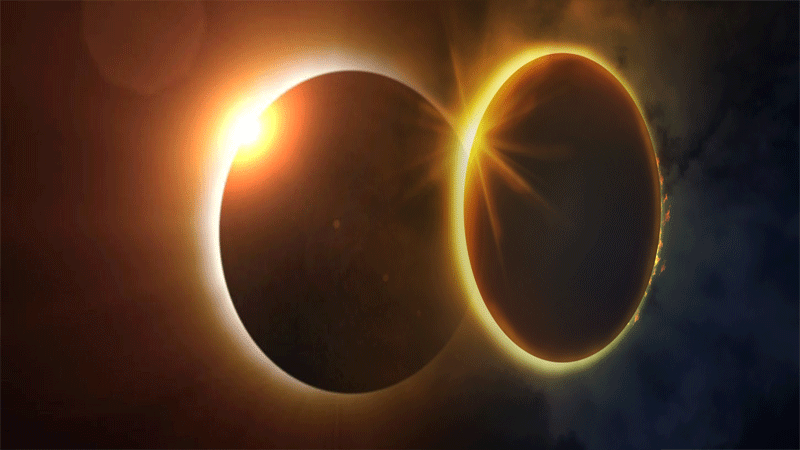The first solar eclipse of 2023 will be seen on April 20, and it is expected to be a hybrid eclipse with breathtaking views.

The first solar eclipse of 2023 will be seen on April 20, and it is expected to be a hybrid eclipse with breathtaking views.
Hybrid solar eclipses are extremely uncommon, occurring only a few times every century. In contrast, regular eclipses take place when the sun and moon line up in an unusual cosmic configuration, casting a shadow or obstructing the sun. The Pakistan Meteorological Department (PMD) has also verified that the eclipse will indeed be seen.
According to Pakistan Standard Time, the eclipse will begin on April 20 in the early morning and end just before noon, but it won’t be visible anywhere in the nation, according to a brief statement from the PMD.
The different phases of solar eclipse will occur at:
Eclipse begins at 6:34am PST
Total eclipse will occur at 7:37am PST
Eclipse will peak at 9:17am PST
Ends at 11:59am PST
The rare hybrid solar eclipse will be seen partially in some locations around the world and completely in others, according to the PMD. Southern and eastern Asia, Australia, Antarctica, and regions above the Indian and Pacific oceans will all be able to see the phenomenon.
According to a report by Popular Science, Astronomers Without Borders, a US-based organisation, has declared April to be “Global Astronomy Month” because the month will be filled with breathtaking sky views.
When the moon reaches Western Australia, it will completely block out the sun, resulting in about nine minutes of darkness during the day. The April 20 solar eclipse will produce a ring of fire, which will be visible for a brief period in the Indian Ocean.
However, this solar eclipse won’t be visible in the US; instead, a different solar eclipse that will be visible in the western US in October will occur a short while later.
The Pakistan Meteorological Department is a self-governing, independent organisation tasked with informing the public of weather warnings and forecasts for protection, safety, and general knowledge.